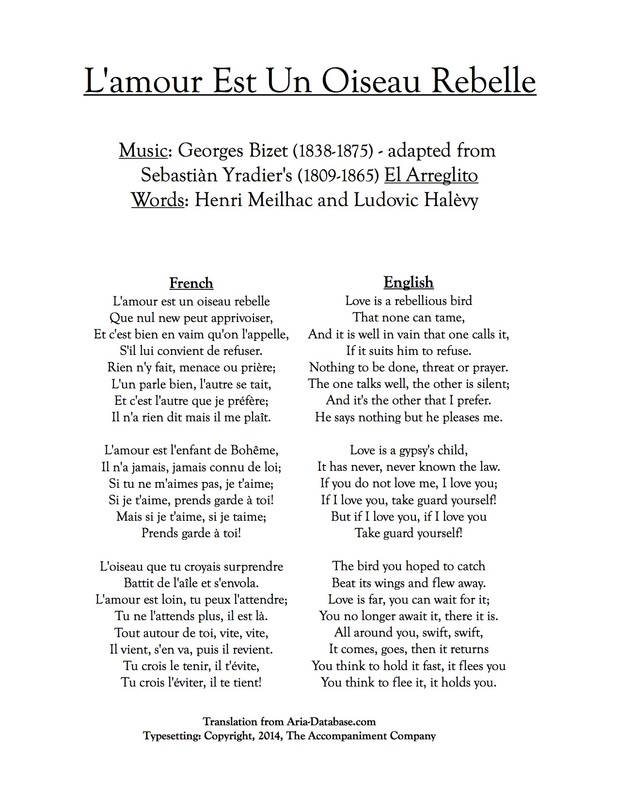

Through musical analysis and historical context, I will return to the true voice and message of Carmen-one that would have been understood by audiences at the time of its premiere. Bizet’s use of exotic compositional techniques portrays the carefree life of the gypsy and reflects the racial, socioeconomic, and gender attitudes of the time period. She is an “other” in opposition to the hegemony of the white male Caucasian represented by Don Jose. The musical exoticism written into the role of Carmen, a classic femme fatale, reflects contemporary beliefs regarding sexuality, class, and race. Bizet’s setting of the plot reflects his political opinions regarding the French government’s actions toward minorities. The exotic life of the gypsy as depicted in Carmen reflects the political unrest of nineteenth century France and the power struggles of race, social class, and gender.

Hopefully after reading Brandon’s insightful analysis of Carmen, you will think twice about what today’s music says about who we are. Brandon and I had many long and enjoyable discussions about gender representations in music, and about how music reflects the time and place in which it was composed. I chose to nominate Brandon’s writing because his analysis is original and interdisciplinary, and is supported by thorough research.

Brandon’s anthology selection is an excerpt from his Senior Honor’s Thesis.


 0 kommentar(er)
0 kommentar(er)
